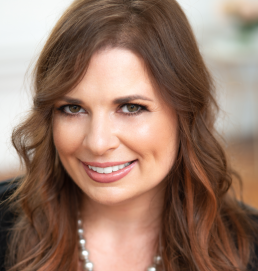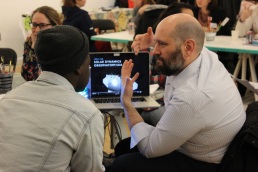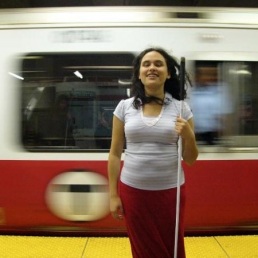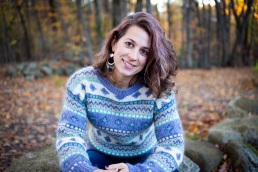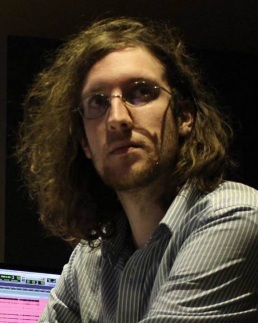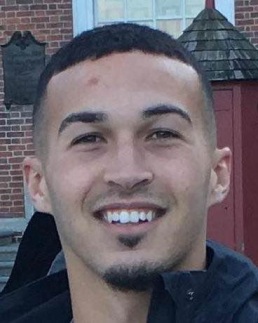Eclipse Soundscapes: Citizen Science Project
The Eclipse Soundscapes: Citizen Science Project (ES:CSP), is a project sponsored by the NASA Science Mission Directorate’s SciAct Program to engage NASA subject matter experts (SMEs) with citizen scientists to explore how U.S. ecosystems are impacted by solar eclipses, such as those upcoming in 2023 and 2024. The project will promote inclusive and accessible learning, with a special focus on people who are blind or low vision (BLV).
The project was inspired by anecdotal accounts, including an early citizen science initiative from 1935, that suggest animal behavior may change during a total solar eclipse. The newest Eclipse Soundscapes project will introduce accessible opportunities for citizen scientists to participate in eclipse research. Through a series of workshops led by NASA SMEs, citizen scientists will collect audio recordings from eclipses and analyze acoustic data to determine how disruptions in light and circadian rhythms may affect ecosystems. The data will include soundscapes recorded by the National Park Service and Brigham Young University during the 2017 total solar eclipse, as well as recordings from the upcoming 2023 annular eclipse and 2024 total solar eclipse.
All workshops, materials, and learning interfaces will be designed to the highest degree of accessibility, with an emphasis on physical, social, and cognitive inclusion.
The mission to make science accessible to everyone will be supported through a number of partnerships. An advisory board of bio-acoustic scientists will help guide ARISA in the analysis and interpretation of the soundscapes data. The board consists of Dr. Megan McKenna of Stanford University’s Goldbogen Lab, Dr. Bryan C. Pijanowski of Purdue University’s Center for Global Soundscapes, Dr. Laurel Symes of The Cornell Lab of Ornithology’s Center for Conservation Bioacoustics, Dr. Angela Des Jardins, Director of the Montana Space Grant Consortium, Dr. Mark Cheung, Science and Deputy Director, Space & Astronomy, CSIRO, and Dr. Jack Ireland of NASA's Goddard Space Flight Center. The National Federation of the Blind, the GBH National Center for Accessible Media, and BLV Consultant Lindsay Yazzolino will provide external evaluations and accessibility consulting. Regine Gilbert and her students in the Integrated Digital Media Program at New York University Tandon School of Engineering will design, implement, and test ES:CSP web interfaces.
The ultimate goal of the project is not only to cultivate a fun and educational experience surrounding the exciting natural phenomenon of an eclipse, but to develop an inclusive framework for improved accessibility and engagement in Science, Technology, Engineering, Arts, and Math (STEAM).
MaryKay Severino
Co-Founder, Chief Operating Officer, Education Director
MaryKay is a native Bostonian who grew up in the Somerville/Arlington area. After graduating from Villanova with a Bachelor’s in Economics/Business, she went on to work in the business world, specifically in program management and marketing.
She then went on to earn her Master’s degree in Education and worked in public & private K-12 school systems and universities in Taiwan and South Korea. Upon returning to the Boston area MaryKay worked in the K-12 public school system before leaving to start her own small business as a REALTOR® while also functioning as the Project Manager for the Eclipse Soundscapes Project at the Center for Astrophysics | Harvard & Smithsonian.
Living abroad gave MaryKay a strong understanding of the challenges faced by anyone who communicates differently. For this reason, the Eclipse Soundscapes project was a natural fit. There she used her program management skills to promote, plan, and execute a project which will bring the amazement and wonder of an eclipse to a more inclusive demographic and also developed a deeper love for Science.
Having worked as both a businesswoman and an educator, MaryKay realized that her passion lies in both building businesses and promoting and supporting more inclusive education utilizing the principles of Universal Design. This led her to start ARISA Lab with friend and co-founder, Trae.
September 6, 2020
Dr. Henry "Trae" Winter III
Co-Founder, Chief Executive Officer, Chief Scientist
Trae is a solar astrophysicist who has worked on eight NASA missions observing the Sun. His primary research focus was understanding how energy is released in the Sun’s atmosphere, the corona, and in other stars. Trae spearheaded many efforts to engage the public in scientific discovery, including work with the Montana Space Grant Consortium, the Salish-Kootenai Flathead Lake Reservation, and the Boston Lyrical Opera.
To highlight the spectacular images being produced by the Solar Dynamics Observatory, Trae designed a series of video wall exhibits for the Cooper Hewitt, Smithsonian Design Museum, the Smithsonian National Air and Space Museum, North Carolina State University’s Hunt Library, the Harvard Art Museums’ Lightbox Gallery, and the Museum of Boulder. However, Trae quickly realized many people had no access to the exhibits he was helping create, the blind and visually impaired (BVI).
To make science accessible to everyone, Trae began the Eclipse Soundscapes Project that built a mobile application that would engage all users with the 2017 Total Solar Eclipse. Consultants, who were themselves blind, were included at every stage of the application’s design process. The application used images, spoken word descriptions, sound, and touch to make eclipse features accessible and engaging to everyone as they were occurring.
Based on the success of the Eclipse Soundscapes Project model, Trae and MaryKay Severino founded the ARISA Lab which could quickly assemble highly trained and diverse teams to invent the new technologies and techniques necessary to make scientific exploration effective, accessible, and engaging for everyone.
September 6, 2020
For over two decades, the National Center for Accessible Media (NCAM) has been a national leader in making digital media accessible for people with disabilities. The team in NCAM—with over 150 years of combined experience in accessibility—are pioneers, inventors, and problem-solvers, frequently anticipating and creating solutions for tomorrow’s technology challenges.
September 4, 2020
NASA’s STEAM Innovation Lab is a think tank with an emphasis on space science content applications. It brings together NASA scientists, engineers and educators to explore and develop new ideas related to infusion of educational technology into STEAM (Science, Technology, Engineering, Art, and Mathematics) activities, programs and approaches. Inside the lab are 10 interchangeable STEAM exploration stations fitted with technologies typically found in many of today’s 21st century educational environments. By placing these stations in close proximity to each other, we encourage users to investigate how the technologies can be effectively blended together for greater impact and integration into NASA education programs and products.
September 4, 2020
The NASA Space Science Education Consortium (NSSEC) capitalizes on NASA’s rich history of sharing research and technology through compelling and innovative education projects. The NSSEC (formerly the Heliophysics Education Consortium (HEC)) continues the Science Mission Directorate’s (SMD) work at the forefront of NASA’s educational endeavors by linking exciting science and missions directly to the American public. The NSSEC team has learned from the strengths and weaknesses of previous programs and has a clear, adaptable plan forward.

September 4, 2020
Lindsay Yazzolino
Lindsay Yazzolino
Writer, Editor, Web Producer, and Social Media Specialist
Lindsay is an accessible technology consultant with particular interests in developing “hand-catching” tactile interfaces and in promoting hands-on science engagement. As a lifelong science enthusiast who has been totally blind since birth, she leverages her inherent nonvisual expertise to collaborate with ARISA Lab scientists, artists, and museum professionals to develop products designed to be experienced through touch and sound. Lindsay has spent several years as a cognitive neuroscience research coordinator, and continues to assist researchers with running studies of cognitive abilities in blind individuals such as braille reading, language, and mathematical proficiency.
Kelsey Perrett
Kelsey Perrett
Writer, Editor, Web Producer, and Social Media Specialist
Kelsey Perrett is a Massachusetts-based freelance writer, editor, web producer, and social media specialist. She enjoys writing about travel, health and fitness, and the environment. When she isn’t writing, she can be found outside exploring trails, at the gym/yoga studio, or attempting to conquer an ever-expanding reading list. Kelsey Perrett is the author of the guidebook Moon New England Hiking.
Miles Gordon
Miles Gordon
Multimedia Developer
Miles Gordon is an audio engineer and multimedia developer currently based in Honolulu. In addition to working on museum installations and accessible media applications, he has been involved in the development of several video games and the creation of several albums.
Arlindo Goncalves
Arlindo Goncalves
iOS Developer
Arlindo Goncalves is an iOS developer from Brockton, Massachusetts, who graduated from University of Massachusetts, Boston with a degree in Computer Science. He enjoys developing applications that help schools and other institutions engage youth, making education a focal point in their lives. In his free time, Arlindo enjoys playing soccer and cooking for his family and friends.
